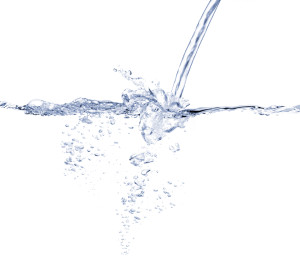Chances are you already know that in certain applications, deionized (DI) water is crucial. You may even work in an industry that uses it. So how do you convert tap water into deionized water, and how then is the di water used in certain applications?
Converting Tap Water into DI Water
The process of deionization exchanges all of the charged ions found in tap water for Hydrogen and Hydroxyl ions. This process helps to form the water molecule, H2O.
The deionization or ion exchange process results in a true purified water “blank”; nothing but water in its purest form.
The deionized water then takes on the characteristics of any solution or chemistry that is added to it. Good quality deionized water will measure approximately 18.2 megohms resistivity with a temperature compensated resistivity meter.
So how do we get there? It involves a deionization process that uses high purity resin to initiate an exchange cycle, cleansing the water of unwanted ions. However, the configuration of equipment for this process varies widely depending on several factors.
What Makes DI Water Necessary?
Deionized water is a true water blank, meaning it assumes the chemistry of whatever product is added to it. This has critical implications, especially for the medical industry.
When medical product manufacturers create a product, water is almost always mixed in. However, to create a chemically sound product, the water can’t contain any impurities that could potentially change the product’s chemical composition.
For example, if a chemist wants to make saline or another solution that’s going to be injected into the body, their water needs to meet a standard called “water for injection,” which starts with deionized water. That way, when the saline formula is added to the water, it creates an exact replica of the solution they need.
If the water contains any impurities or metal, such as copper or lead, it will cause adverse health effects for whoever injects the product.
Other DI Water Applications
In addition to medical product manufacturing, DI water is used today in facilities across a variety of industries, required for myriad of reasons.
For example, a glass manufacturer may require DI water to rinse their product after it’s complete. Using tap water would result in TDS deposits (calcium, magnesium, silica) on the glass surface.
For the biotech and pharmaceutical industries, bacteria-free water is an absolute necessity. That’s because if there is any chance that a solution or chemical mixture could end up in a patient’s body, any amount of organic content could be of great harm.
In specimen processing where surgical instruments are cleaned, deionized water is used in conjunction with a liquid or gas disinfectant and a microbial-free rinse to ensure that the instruments are free of any residuals, thereby ensuring absolute sterility. This is something that the use of tap water cannot guarantee.
Deionized water is water that has had almost all of its mineral ions removed, resulting in a bacteria-free purified water.
For many industries, like the medical and pharmaceutical industries, deionized water is the thing that helps maintain product safety and integrity.
We’ll do more than give you a quote—we’ll visit your site to analyze your industrial water needs.


Follow Us